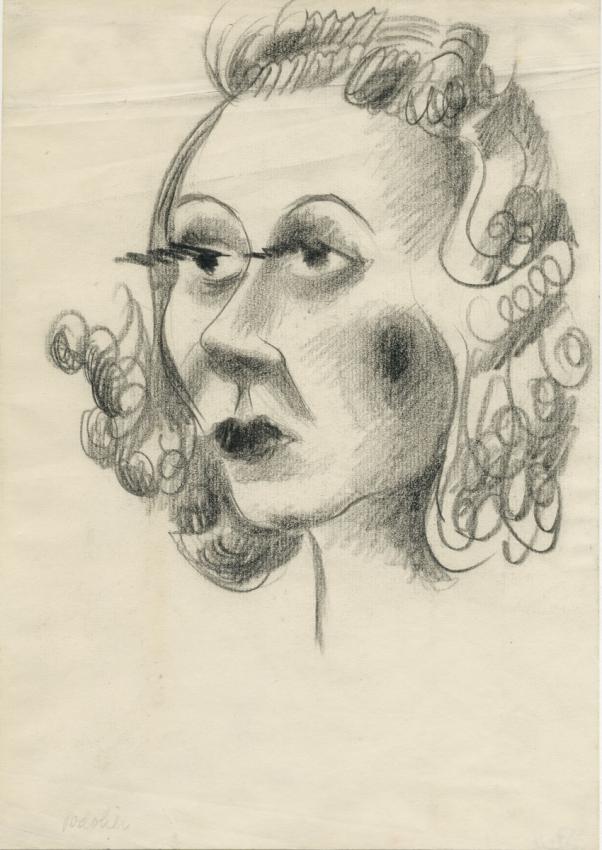Marion Podolier (née Rosenthal) (1906 – 1976)
Born Hildegarda Rosenthal in Berlin, she was a trained soprano. In 1932-1933, she acted in German films under the stage name Marion Taal, but was forced to retire when the Nazis rose to power. In the late 1930s, in light of the anti-Jewish legislation, she left Berlin for Prague. She sang for the Czech Chamber Opera until Jews were banned from performing, but continued to perform at private events in Jewish-owned houses together with other Jewish musicians, such as Viktor Ullmann.
On 12 September 1942, she was deported to the Terezin ghetto on Transport Bg. She took part in many performances and concerts while in the ghetto, including Mozart's Magic Flute and Bedřich Smetana's The Kiss, and was cast in the opera, The Emperor of Atlantis by Viktor Ullmann and Peter Kien.
After liberation, she moved to London, and in 1954 she and her husband Paul George Kuhn became British citizens and changed their last name to Kewan.
František Lukáš (Lustig) (1911–1996)
Lukáš was born in Prague and began painting as a child. After graduating high school, he studied architecture and painting at the Prague Technological Institute. His works were first displayed publicly in 1933, in an exhibition sponsored by the Mánes Association of Fine Artists. Over time, the Mánes Association became a second home for Lukáš, who initially joined as an apprentice before becoming a fully-fledged member. Following the German occupation, the Jewish members were expelled from the association. On 4 December 1941, Lukáš was incarcerated in the Terezin ghetto, where he worked in the Technical Department's printing workshop, located in the Magdeburg Barracks. Along with the other artists who worked there, he was forced to produce propaganda material for the Germans. On 18 May 1944, he was deported to Auschwitz, and subsequently to the Sachsenhausen, Schwarzheide and Oranienburg concentration camps. He was evacuated on a death march to the Cottbus camp, where he was liberated by the Red Army.
After liberation, Lukáš returned to Prague. He worked in the film industry, directing documentary films about art. He also continued to paint and his works were exhibited in numerous galleries. They were well-received and brought him success.
During the three years he was interned in Terezin, Lukáš immortalized the inmates with his sketches, focusing on portraits of actors and performing artists. His animated and humorous portraits emphasize, in a highly expressive and exaggerated style, the actors’ and performers’ facial expressions while on stage.




